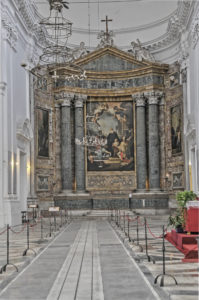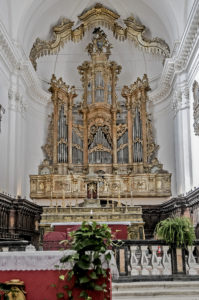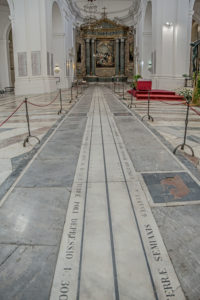Located in Piazza Dante in the historic centre of Catania, the church of San Nicolò l’Arena is the spiritual heart of the monastery. It was built after Etna’s eruption in 1669, replacing an older building from the Renaissance period.
The façade is striking for the giant proportions of the eight columns, which, in pairs placed on large bases, flank the main and side portals.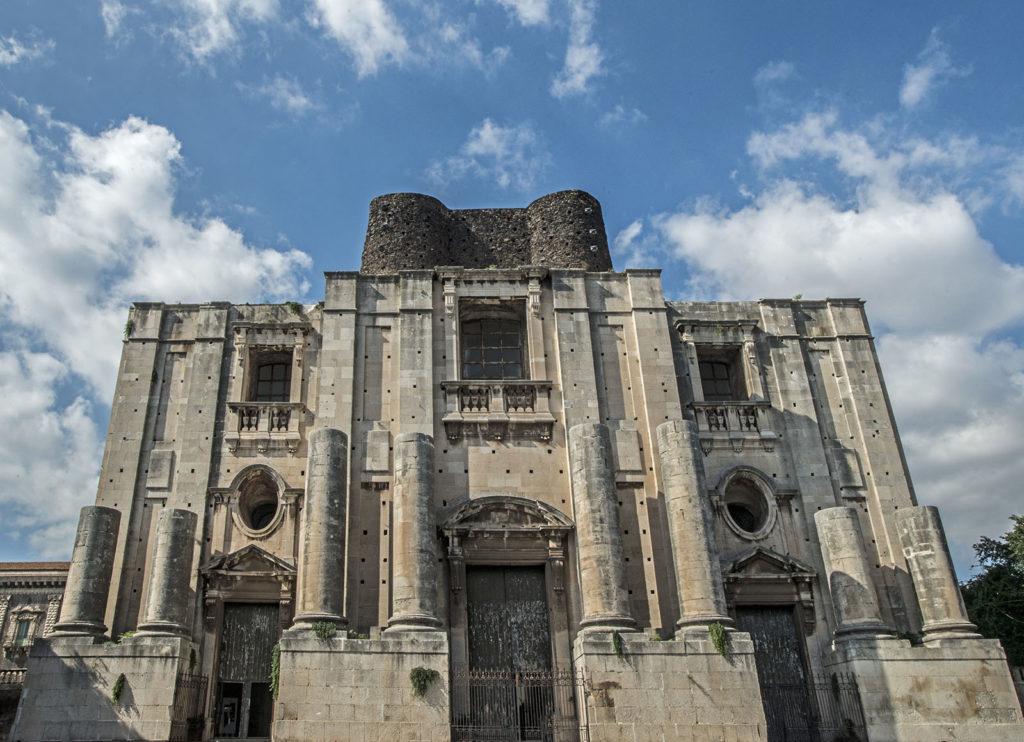 The large rectangular windows and the two oval openings above the portals light up the heavy, white marble structure. Work was started in 1774 by the architect
Carmelo Battaglia Santangelo
The large rectangular windows and the two oval openings above the portals light up the heavy, white marble structure. Work was started in 1774 by the architect
Carmelo Battaglia Santangelo
and left unfinished in 1802 by his cousin Antonino Battaglia. What is most surprising is the strong contrast between the incompleteness of the exterior and the large spaces of the interior.
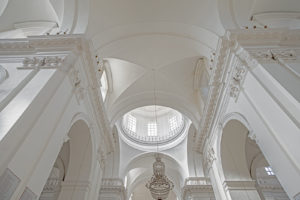
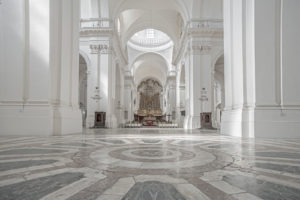
The church has a Latin cross plan, divided into three
naves
, separated by large arcades; crossing the main nave leads you to the main altar.
The walls have no particular decorations; as a matter of fact, they are white, but the interior shines thanks to light from the windows. The brightness is also created by the majestic dome designed by architect
Stefano Ittar
in 1780. Its large windows create plays of light that are reflected between the naves, altar and precious colourful marble floor.
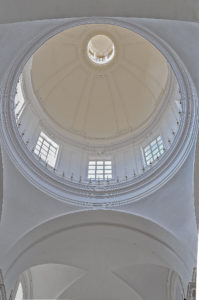
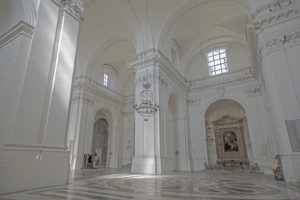
Inside, the church contains precious
works of art
, a valuable
organ
and a splendid
sundial
.
